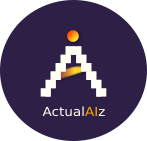For undergraduate students aspiring to pursue graduate studies or simply expand their academic horizons, gaining research experience can be invaluable. However, the path to meaningful research involvement isn't always straightforward, especially for students at institutions without extensive research programs. In this article, I will outline effective strategies for undergraduates to acquire and make the most of research opportunities.
Start Early and Be Proactive
The journey into research should ideally begin early in your undergraduate studies. Summer before junior year is an excellent time to start looking for research projects. Don't wait for opportunities to come to you; actively seek them out within your department. This could involve joining a lab, assisting faculty with ongoing projects, or proposing an independent study project. Being proactive demonstrates your enthusiasm and commitment, qualities that faculty members highly value in potential research assistants.
Find a Mentor and Build Relationships
A key step in your research journey is finding a mentor. A faculty advisor can provide invaluable guidance, support, and opportunities for deeper involvement in research. When approaching potential mentors, show genuine interest in their work and come prepared with questions or ideas. As you work with your mentor, focus on building a strong professional relationship. This can lead to more responsibilities, better letters of recommendation, and potentially even co-authorship on publications depending on the extent of research contributions.
Develop Essential Skills and Take Ownership
To excel in research, focus on developing crucial skills related to research methods, statistical analysis, and scientific writing. Take relevant courses, attend workshops, and seek out online resources to enhance your skill set. Once involved in a project, demonstrate your commitment by taking ownership. This means showing genuine engagement, learning new concepts and tools relevant to the research, and proactively exploring new ideas and approaches. Over time, aim to take on more responsibility by suggesting new ideas, contributing to writing papers, presenting work, and even mentoring junior students.
Engage with the Broader Research Community
Research doesn't happen in isolation. Attend talks, seminars, workshops, and conferences to stay informed about current research trends and connect with other researchers. These events provide opportunities to learn about cutting-edge work in your field and network with peers and potential future collaborators or advisors. Engaging with the broader research community can also help you identify new areas of interest and potential future research directions.
Document Your Work and Seek Feedback
Keep detailed records of your research activities, methodologies, and findings. This documentation will be invaluable when writing your statement of purpose or research summaries for graduate school applications. It also helps you track your progress and identify areas for improvement. Regularly seek feedback from your mentor and peers on your work. This not only helps you improve but also demonstrates your commitment to growth and excellence in research.
Consider Gaining Research Experience Post Graduation
If you're attending a university without extensive research programs or haven't had the opportunity to gain research experience during your undergraduate studies, consider dedicating 1-2 years after graduation to working as a research assistant. This extended period allows for deeper engagement with research projects and can significantly strengthen your graduate school applications. Look for RA positions at research-intensive universities or reputable research institutions in your field of interest. This experience can provide you with the skills, research experience, and recommendations needed to compete effectively for reputable graduate programs.
In my view, by following these strategies, undergraduate students can gain valuable research experience that will serve them well going forward. Remember, the key is to be proactive, committed, and always eager to learn. Whether you're working in a well-equipped lab or creating opportunities from limited resources, your attitude, effort and work ethic will be the primary drivers of your success in research.
 → Research 15-20 programs & create your preliminary list → Take a diagnostic GRE practice test → Start gathering application requirements
→ Research 15-20 programs & create your preliminary list → Take a diagnostic GRE practice test → Start gathering application requirements ️ → Register for GRE (aim for late Aug/early Sept) → Begin drafting your statement of purpose
️ → Register for GRE (aim for late Aug/early Sept) → Begin drafting your statement of purpose → Contact 3-4 recommenders for letters → Provide them with your resume & program list → Narrow down to 8-12 final schools
→ Contact 3-4 recommenders for letters → Provide them with your resume & program list → Narrow down to 8-12 final schools → Take the GRE (plan for potential retakes) → Complete first draft of statement of purpose
→ Take the GRE (plan for potential retakes) → Complete first draft of statement of purpose → Request official transcripts → Polish your statement with feedback → Send materials to recommenders with deadlines
→ Request official transcripts → Polish your statement with feedback → Send materials to recommenders with deadlines → Submit early deadline applications → Follow up with recommenders
→ Submit early deadline applications → Follow up with recommenders → Submit remaining applications → Verify all materials received → Thank your recommenders
→ Submit remaining applications → Verify all materials received → Thank your recommenders Pro Tips:
Pro Tips:
